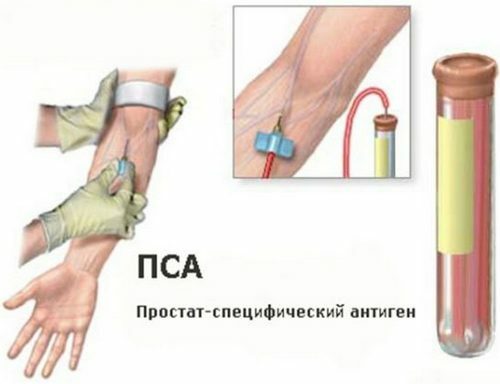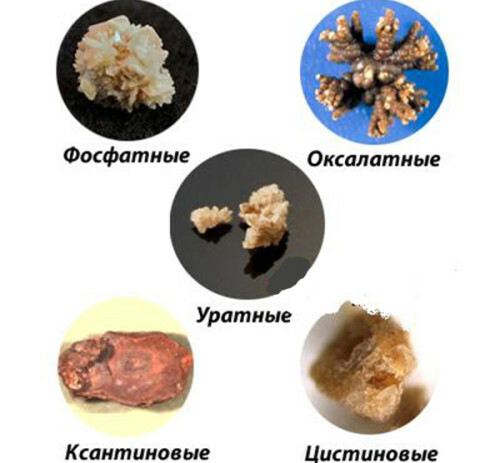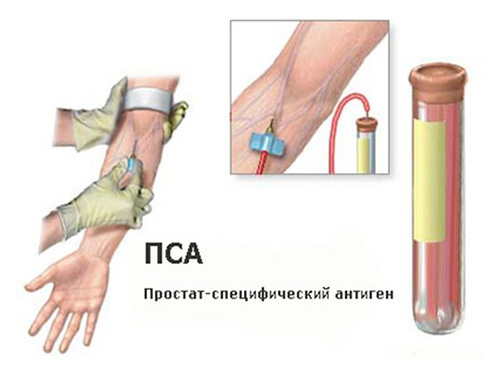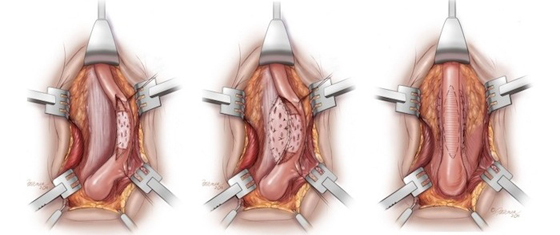What is the normal level of PSA after radical prostatectomy?
PSA, or prostatic specific antigen is a tumor marker that appears in the human blood serum. The definition of PSA is of great importance in the diagnosis of cancer and prostate adenoma. Control of the oncomarker after the prostatectomy performed allows to detect the relapse of the disease in time and take all measures to prevent serious complications.

PSA is a complex protein secreted by prostate cells
Contents
- 1 Biological role
- 2 Norm
- 3 PSA level monitoring
- 4 Decoding results
Biological role
The PSA is a complex protein consisting of 237 amino acids. Normally, the protein is synthesized in the cells of the prostate gland. Producing in the excretory ducts of the prostate, PSA is a part of her secret and gets into the sperm. A very small amount of protein penetrates into the blood. The growth of PSA in the serum indicates the development of the pathological process and requires compulsory medical advice.
Norm
In the serum, PSA is in a free and bound state. Up to 90% of the antigen is bound to other peptides, which makes it available for laboratory diagnosis. Bound and free antigen together constitute a common PSA, the detection of which is of great importance in the practice of androlog.
The concentration of PSA in the blood changes with age. A common norm of PSA is its concentration in the blood of less than 4 ng / ml. In men under 50 and more, the protein concentration of 3 ng / ml is an alarming symptom. The final diagnosis can be established only after a complete examination of the patient.
An increase in the concentration of PSA is observed when the hematoprostatic barrier is destroyed and the protein enters the blood. This phenomenon occurs in the following situations: :
- prostate cancer;
- prostate adenoma;
- inflammatory changes in the organ;
- ischemic changes in the prostate.
Control of PSA level
For the treatment of prostate tumors, radical prostatectomy is often used - complete removal of the prostate gland. In the postoperative period, a special observation is established for the patient. To assess the effectiveness of the treatment and timely detection of metastases, the PSA level is monitored for a specific scheme of :
- , the first analysis - 3 months after prostatectomy;
- every 6 months for 2 years;
- once a year for 5 years.
The PSA analysis is taken from the vein. To obtain reliable results, some rules should be adhered to:
- A blood test is given in the morning on an empty stomach( at least 4 hours of fasting).
- For 2 days before the test, it is necessary to refrain from ejaculation.
- Do not smoke 2 hours before the test.
- The level of PSA should be determined 7 days after rectal examination, TRUS or prostate massage.
- It is not recommended to combine the examination with a recent( 6-7 days) prostate biopsy, colonoscopy, cystoscopy.
- Some medications affect the level of PSA.If you need constant medication, you should notify the attending physician about this.
Interpretation of results
The PSA value after radical prostatectomy is not higher than 0.2 ng / ml. In some sources, it is indicated that the concentration of PSA is considered to be up to 0.4 ng / ml.
The growth of PSA after prostatectomy indicates a relapse of the disease. To clarify the diagnosis, an additional examination is performed( ultrasound, scintigraphy, PET-CT, etc.).
There are some patterns of entrainment of PSA:
- An increase in PSA within 6-24 months after prostatectomy suggests a systemic relapse and the emergence of distant metastases.
- The increase in PSA after 2 years or more suggests a local relapse of the disease. The
is another important indicator that allows the detection of cancer recurrence. The time of doubling PSA is directly related to the growth rate of the tumor. In case of systemic relapse, the antigen is doubled in 6-8 months, at local - for 1 year. The rapid increase in BFWS indicates the emergence of a low-grade tumor or a significant prevalence of the process and is a prognostically unfavorable feature.
PSA is a valuable marker of prostate gland status. Determining the concentration of antigen in the blood allows time to identify cancer and other diseases of the prostate in the early stages. Control of PSA after a radical operation makes it possible to judge the effectiveness of the therapy and increases the chances of a favorable outcome of the disease.
Recommended for viewing:



